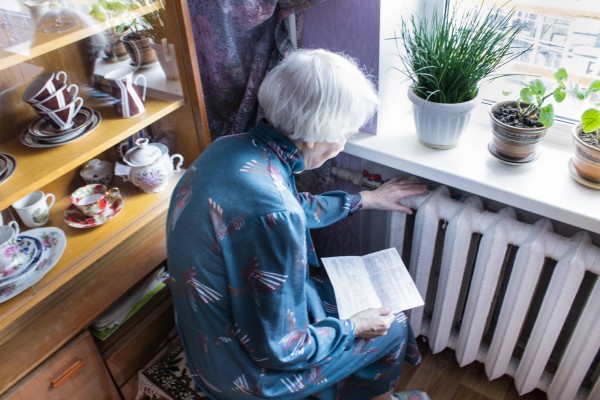Study: Seniors Have Big Energy Bills, Little Ability to Reduce Them
Researchers Compare Four Age Groups’ Energy Spending in 31 Developed Nations
In developed nations, adults over the age of 60 are spending more money on energy than their younger counterparts. They are also the group likely to face greater challenges in affording and/or making the changes needed to reduce those increased costs, finds research published this week in the Proceedings of the National Academy of Sciences. The research team is made up of experts from the University of Maryland, Shandong University in China, and the University of Groningen in the Netherlands.
Using data from the 31 developed nations’ household expenditure surveys, the researchers found that the energy cost burden of individuals ages 60 and up was higher than that of individuals under the age of 30, 30-44, and 45-59 years old. In the United States, the energy cost burden of the 60-plus group was 12.7%, while the rates of the younger groups were 11.3%. 10.9%, and 10.6%. In Japan, the energy cost burden of the 60-plus group was even higher, at 15.0% for the 60-plus group and 12.7%. 12.4%, and 9.3% for the younger groups.
The researchers also found that energy cost burden rates were even higher among the nations’ lowest-income seniors. In the United States and Japan, the lowest-income seniors’ energy cost burdens were 16.9% and 17.1%, respectively, five and two percentage points higher than the age group’s overall burden rate.
“Seniors tend to stay longer at home because of their health requirements, and thus have a higher level of household energy consumption. They also have consumption patterns shaped by generational and habitual factors, like the baby boom generation having more fuel demand based on their car preferences,” explained Kuishuang Feng, an associate professor in the Department of Geographical Sciences (GEOG) and one of the paper’s corresponding authors. “These lead to a higher burden of energy costs.”
The researchers point out that when energy costs go up, the solution for seniors isn’t as simple as budgeting better, or getting another job. They note that very few new jobs are being created for people over the age of 55 in the United States.
“Low-income seniors face great challenges in reducing their carbon footprint and managing energy bills due to limited incomes, physical limitations, and living in older, less energy-efficient homes,” adds GEOG Professor Laixiang Sun, another corresponding author of the paper. “Lack of information, difficulty adapting to new technologies, and prioritizing health and other expenses over energy-saving investments further exacerbate these issues.”
These findings add to Feng’s earlier work on older adults’ energy consumption. Roughly one year ago, he co-authored a Nature Climate Change paper that found that adults 60 and up from wealthy nations increased their greenhouse gas emissions by 7.5% between 2005 and 2015, an increase that puts them in a position to surpass the current leader in global greenhouse gas emissions, the 45-59-year-old age group.
Feng says the new findings of the paper make it even more necessary for policymakers to step in to address this issue–not just to support senior well-being, but to mitigate climate change.
“Although previous policies have included low-income groups in reducing the impacts of the energy price increase, the plight of the low-income senior group has not received sufficient attention,” he said.
Photo of a senior woman holding an energy bill in front of a radiator is from iStock
This article was written by Rachael Grahame and originally published by the College of Behavioral & Social Sciences.
Published on Wed, 03/13/2024 - 10:21


